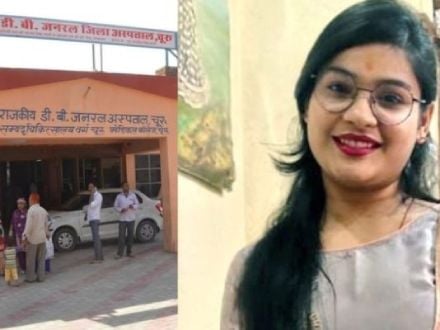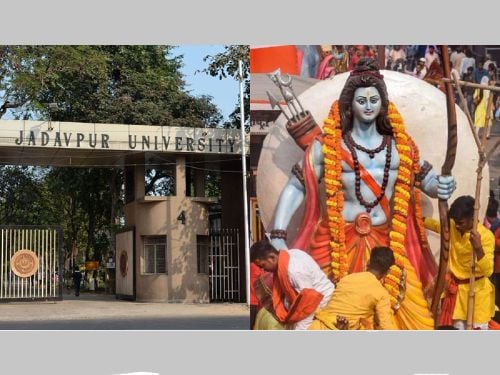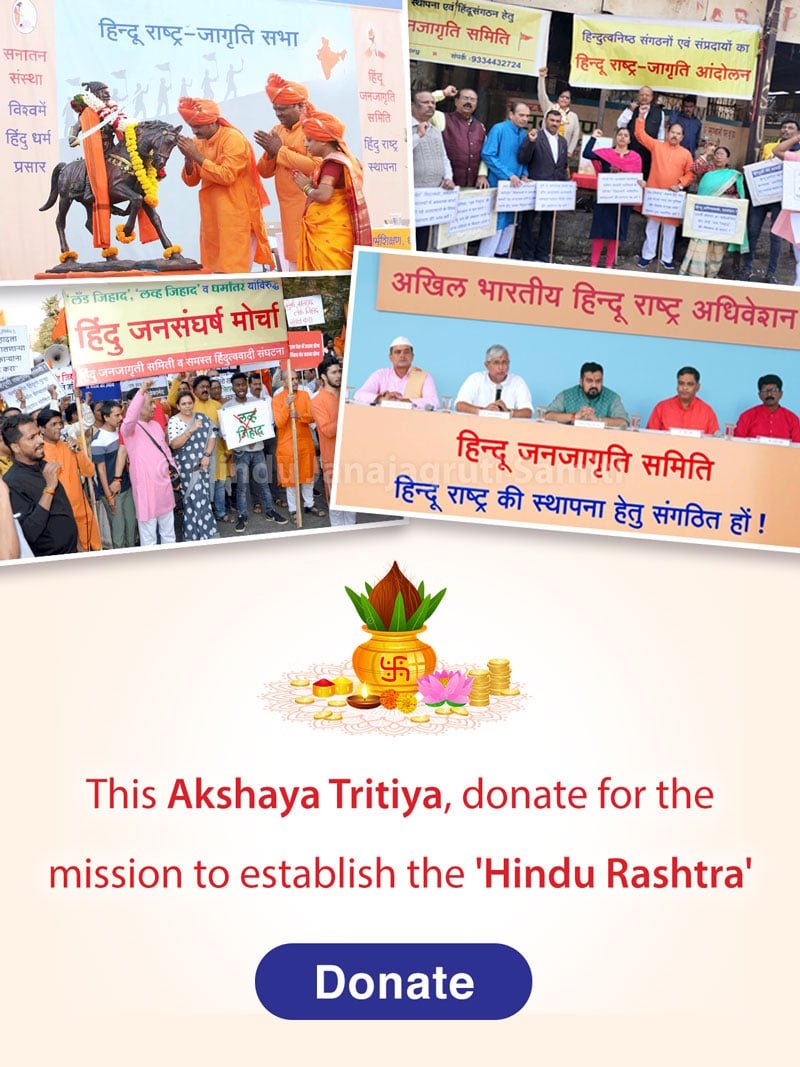Ashwin Krushna Chaturdashi / Ashwin Amawasya, Kaliyug Varsha 5111
Pune (Maharashtra): Even as the festival of lights illuminates our lives, it’s a good time to revisit the origin of every ritual associated with the celebrations, with a view to understanding them better. Why do we rise before the dawn to perfume and oil ourselves before the ritual bath; why do we buy metal on dhanteras,’ or perform arti’ for brothers, so on and so forth.
A statement from Hemant Shinde, from the Hindu Janajagruti Samiti, explained: "Diwali is a series of festivals of five days, which fall towards the end of the Hindu month of Ashwin and the beginning of the month of Kartik. The very word Diwali’ has been derived from Deepavali’ which means a row of lights. It is celebrated on four consecutive days the thirteenth day (Dhanatrayodashi), the fourteenth day (Naraka Chaturdashi) and the new moon day (Amavasya) [Lakshmipoojan] of the dark fortnight of Ashwin and the first day of the bright fortnight of Kartik (Balipratipada). Some exclude the thirteenth and consider only the remaining three days as Diwali. Since ‘Vasubaras‘ and ‘Bhaubij‘ respectively precede and follow Diwali, they are included in it. However, they are separate holy festivals."
Dhanteras, which fell on October 15 this year, is an auspicious day to purchase metal gold, silver, even kitchen utensils. Businessmen worship their treasuries on this day, as a commercial year comprises of the period between one Diwali and another. New account books are begun on only this day.
Homemaker Abhradita Nahvi and Rashmi Joshi say they make the most of this day to invest in an asset for the house, be it an electronic item or gold jewellery. City jewellers said people book their orders in advance, only to take delivery on this auspicious occasion.
Narak Chaturdashi and Lakshmipoojan (October 17):
Shinde explained: "The Shrimadbhagvat Puran‘ says that on this day Lord Krishna slayed the powerful demon Narkasur, who used to harass people. Lord Krishna, slayed him and set his captives free. Dying Narkasur then asked Krishna for a boon, "On this date, let the one who takes an auspicious bath (mangalsnan) not suffer in hell," Krishna granted the boon. Consequently, on this day, the faithful wakes up before dawn to have the ritual bath."
"There is something special about the bath. Getting up early, anointing oneself with ‘utana‘ (traditional oil and scrubs), bursting crackers and then sitting down a special breakfast, is something each family looks forward to every year," said school teacher Sulabha Vikas. "All my little students have lovely memories to narrate of that day especially the utana bath and this outstanding memory of childhood will stay with them."
Lakshmipoojan:
According to Shinde: "Legend has it that on this day Lord Vishnu, along with Lakshmi, liberated all the deities from Bali’s prison and thereafter they all slept in the ocean. To represent that, everyone should enjoy themselves at home and light lamps everywhere… Just as the deities, Lakshmi and Indra, are worshipped on the religious festival of Kojagari, Lakshmi and Kuber are worshipped on this new moon day. Lakshmi is the deity of wealth, but Kuber is the treasurer. Several people possess the art of earning money but do not know how to save it. However, saving money and spending it appropriately is far more important than earning it.
Kuber is the deity who teaches the art of saving money as He Himself is the treasurer."
"No matter how busy one is, one makes it a point to be home in time for this pooja," says businessman Jignesh Kariya. "It is the most auspicious occasion, bringing all members of the family together."
All homes are lit with lamps, in case the Goddess Lakshmi comes-a-calling.
Balipratipada (October 19)
The ritualistic worship of King Bali is performed to avoid troubles from distressing energies. When these frequencies come together, the distressing energies under the control of King Bali create more distressing energies. Hence, a naividya’ (offering) is made which keeps Bali and the distressing energies under his control, happy for the whole year in Paatal,’ and not cause any trouble to lives on earth.
Bhaubij (October 19)
According to Shinde: "On this day, Lord Yama visited His sister Yami for a meal. Hence, the day has acquired the name Yamadvitiya. On this day, a man should visit his sister, present her with clothes, ornaments, etc and eat a meal at her place. If he does not have a sister by blood relation then he can go to a female cousin’s place or consider any other woman as his sister."
Homemaker Manali Natu said: "This is the day when one’s brother takes precedence over everyone. Typically, I would spend the day with him; starting with the utana bath, aarti and special meal consisting of five special dishes (panchapadartha)
Source: TOI
Also See
 |
Know about Forthcoming Dharmasabha
Dhama Jagruti Sabhas is creating mass awareness among Hindus about various problems affecting Hindu Dharma. |
 |
Save temples from Anti-Hindus
Temples are the centres of Hindu Dharma. Anti Hindu forces like Muslims, Congress, Christians has constantly targetted them. HJS is fighting against these forces. |

 Rajasthan: Woman found hanging at a beauty parlour, Arshad, 3 others booked
Rajasthan: Woman found hanging at a beauty parlour, Arshad, 3 others booked Jadavpur Univ revokes permission to celebrate Ram Navami on campus after granting it
Jadavpur Univ revokes permission to celebrate Ram Navami on campus after granting it Andhra Pradesh: Farooq kills mentally challenged Hindu man for insurance money
Andhra Pradesh: Farooq kills mentally challenged Hindu man for insurance money Pakistan: Ancient Hindu temple in Khyber Pakhtunkhwa demolished for commercial complex
Pakistan: Ancient Hindu temple in Khyber Pakhtunkhwa demolished for commercial complex Bihar: Goddess Bhagavati Temple in Araria vandalised and deities damaged
Bihar: Goddess Bhagavati Temple in Araria vandalised and deities damaged Vadodara: Beef supplier Imran Qureshi arrested in beef-stuffed samosa case
Vadodara: Beef supplier Imran Qureshi arrested in beef-stuffed samosa case